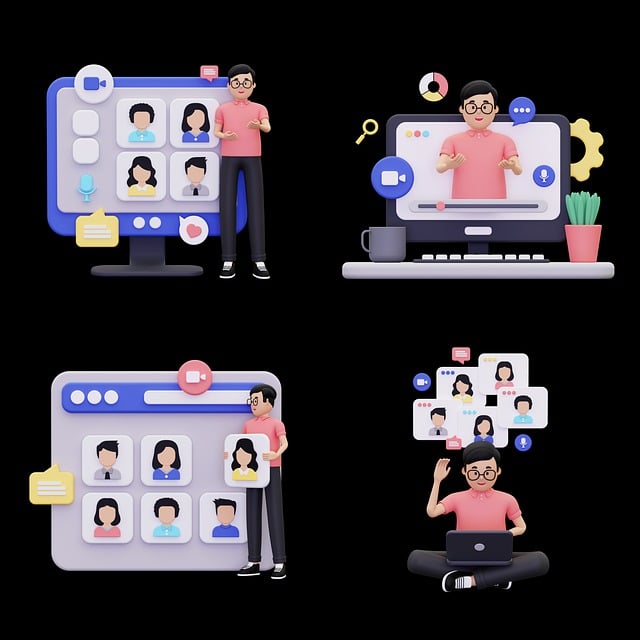Confidential computing, enabled by tools like Private Internet Access (PIA), is transforming global academic research by securely handling sensitive data without compromising privacy. Non-profit organizations can leverage this technology to enhance knowledge sharing and open access while ensuring data security through strategic assessments, encryption methods, VPN integration, containerization, and cloud services tailored for data privacy. This revolutionary solution fosters trust, facilitates international collaboration, and promises enhanced data protection in the future, making it a cornerstone of modern research methodology for non-profits worldwide.
“Unleashing the Potential: Private Internet Access for Academic Researchers in the Age of Confidential Computing. In today’s digital landscape, securing online research is paramount, especially for non-profit organizations worldwide. This comprehensive article explores ‘Confidential Computing for Non-Profit Organizations Worldwide’, highlighting its benefits and practical implementation strategies. From safeguarding sensitive data to enhancing collaboration, private internet access revolutionizes academic research. Discover how this approach fosters a secure environment, enabling researchers to navigate the digital realm with confidence.”
- Understanding Confidential Computing for Researchers
- Benefits of Private Internet Access in Academia
- Implementation Strategies for Non-Profit Organizations
- Global Impact and Future Prospects for Secure Online Research
Understanding Confidential Computing for Researchers

Confidential computing is a game-changer for academic researchers, especially when it comes to handling sensitive data. This approach ensures that computations can be performed on encrypted data while it remains within the user’s control, eliminating the need to share private information with third parties. For non-profit organizations worldwide, this technology offers a secure way to collaborate and analyze data without compromising confidentiality.
By leveraging confidential computing, researchers can gain valuable insights from large datasets while maintaining the privacy of individuals and institutions. This is particularly relevant in diverse academic fields, such as healthcare, social sciences, and environmental research, where data collection often involves personal and confidential information. With this method, organizations can foster a culture of trust and collaboration, enabling them to unlock new discoveries without sacrificing data security.
Benefits of Private Internet Access in Academia

In today’s digital age, where academic research often involves sensitive data, Private Internet Access (PIA) has emerged as a game-changer for researchers worldwide. By utilizing PIA, scholars can engage in confidential computing, ensuring that their work remains secure and private. This is especially beneficial for non-profit organizations conducting groundbreaking research, as it allows them to protect intellectual property and the privacy of participants. With PIA, data encryption becomes the norm, safeguarding against unauthorized access and potential data breaches.
PIA enables researchers to navigate the internet with enhanced anonymity, which is crucial when exploring sensitive topics or collaborating internationally. This level of security fosters a culture of transparency and trust within academic communities, encouraging open dialogue and knowledge sharing. Moreover, PIA’s ability to bypass geo-restrictions opens up a world of resources, ensuring that researchers have access to the latest scholarly materials and databases regardless of their location.
Implementation Strategies for Non-Profit Organizations

Non-profit organizations play a vital role in promoting knowledge sharing and open access to information globally, making Confidential Computing an attractive solution for enhancing their digital infrastructure. To implement private internet access, these organizations can follow strategic steps tailored to their unique needs. Firstly, they should assess their data security requirements, considering the sensitive nature of research data. This involves identifying potential risks, defining data protection goals, and selecting appropriate encryption methods to safeguard information during transmission and storage.
Once security measures are in place, non-profits can begin integrating Confidential Computing into their systems. This may include setting up virtual private networks (VPNs) for secure remote access, deploying containerization technologies for efficient resource management, and utilizing cloud services that prioritize data privacy. By adopting these strategies, non-profit organizations worldwide can ensure secure, reliable, and cost-effective private internet access, fostering collaboration among academic researchers while maintaining the confidentiality of their research outcomes.
Global Impact and Future Prospects for Secure Online Research

In today’s digital age, researchers worldwide are embracing confidential computing as a game-changer for secure online research. This innovative approach allows academic institutions and non-profit organizations to conduct sensitive studies without compromising data privacy. By utilizing encrypted environments, researchers can explore vast datasets while ensuring confidentiality, fostering trust among participants, and upholding ethical standards. The global impact of this trend is profound, enabling diverse teams to collaborate seamlessly and pushing the boundaries of knowledge discovery.
Looking ahead, the future prospects for secure online research through confidential computing are promising. As technology advances, we can expect more sophisticated tools and protocols that further strengthen data protection. This will not only encourage researchers to embark on intricate, data-intensive projects but also promote international cooperation in academic endeavors. With a global reach, Confidential Computing for Non-Profit Organizations Worldwide is poised to become a cornerstone of modern research methodology, revolutionizing how we harness data for scientific advancement while maintaining the utmost confidentiality and security.
Private Internet access has become an indispensable tool for academic researchers, enabling them to conduct confidential computing effectively. By safeguarding sensitive data and ensuring secure online research, private networks foster innovation and collaboration among non-profit organizations worldwide. As the global landscape of digital privacy continues to evolve, investing in robust security infrastructure is crucial for maintaining the integrity of academic research. The future of secure online research looks promising, with continuous advancements in confidential computing technologies driving progress across institutions and disciplines.
